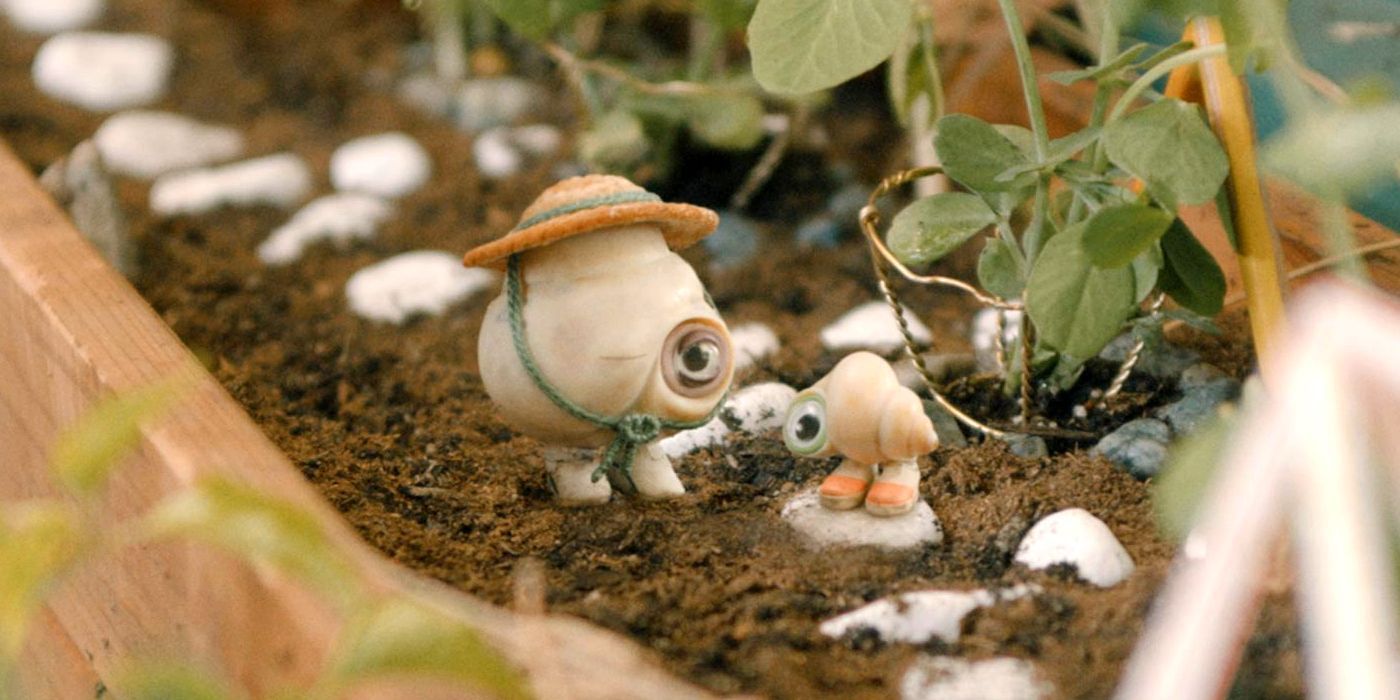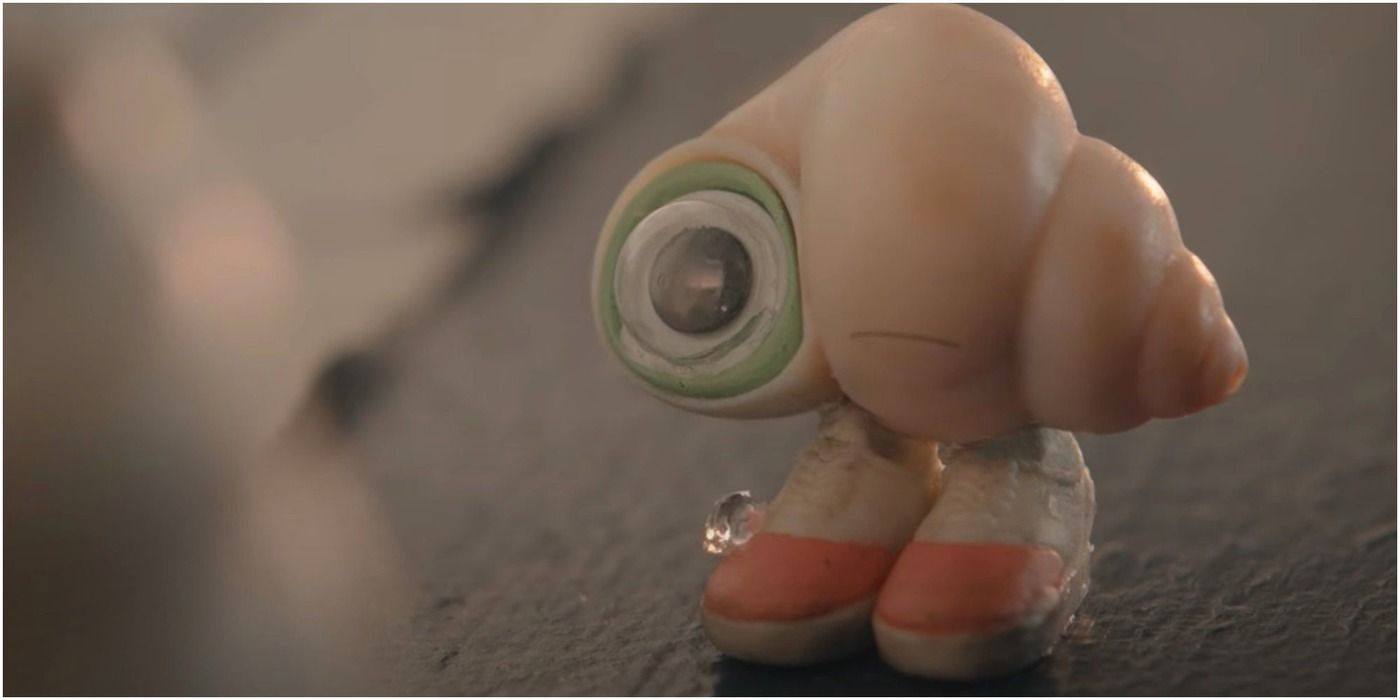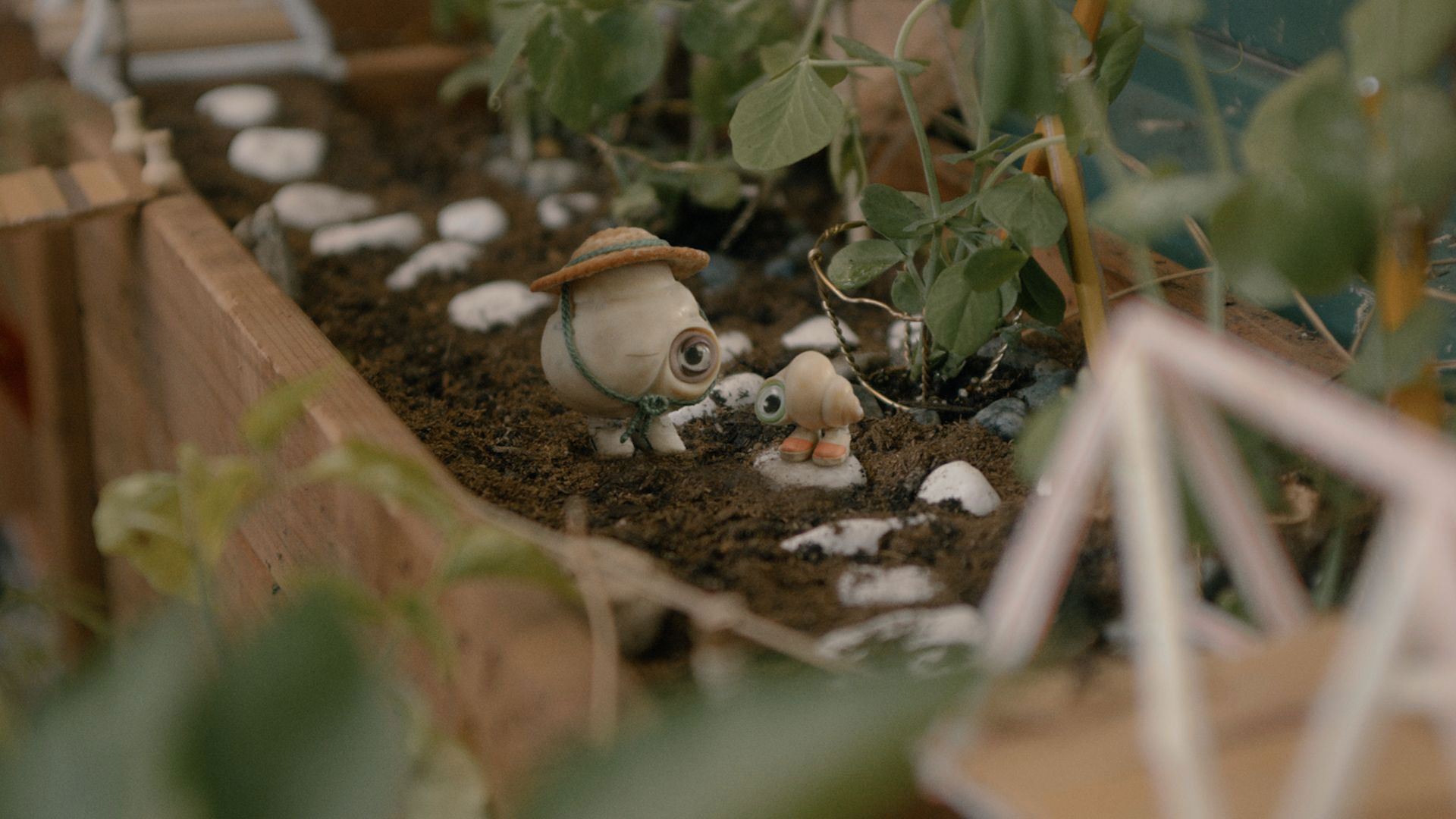As a storytelling device, death itself is an inherently dramatic element of a film’s narrative. Many films often amplify the moments and emotions associated with it in strikingly thematic ways to make the audience empathize with the characters and, in the case of family films, introduce the notions of mortality and grief to younger viewers in a way they can readily identify with.
There have been many family films that sought to introduce the concept of death to kid audiences, such as The Lion King, Bambi, Bridge to Terabithia, and more. While these films are effective in showing kids the pain that comes with loss and how one must face it as an inevitable part of life, A24’s Marcel the Shell with Shoes On depicts the experience of losing a loved one in a far more grounded and tangible way than most family films of the past.
Directed by Dean Fleischer Camp in a mockumentary style, Marcel the Shell follows the titular tennis-shoed mollusk, voiced by Jenny Slate, as he navigates his daily routine around a human house with his grandma Connie (Isabella Rossellini). The film indulges in a shell’s eye view of the world and champions the importance of community and the beauty that can be found in the minuscule mundanity of everyday life.
The driving force of the film is Marcel’s need to find his friends and the rest of his family after they were mistakenly taken away by one of the house’s former tenants. After becoming an overnight viral sensation, Marcel uses newfound internet fame as a chance to find where the rest of his family may have gone, all while taking care of his Grandma, who is becoming older and sicker by the day.
Unlike the grimly traumatizing familial deaths seen in many a Disney epic, the death of Grandma Connie is not played off as a poetically ironic twist of fate to amplify the story’s drama or build tension, but earnestly frank as simply a part of life that Marcel cannot control and must process head-on.
Marcel faces the loss of his grandma in a way that most audiences watching have lost a loved one: not to an evil plot or dramatically convenient accident, but slowly to the ravages of declining health and age. For a majority of the film, Connie is all the family Marcel has left in the world and upon seeing the prospect of losing her to death becoming a clearer reality, he becomes her sole, vigilant caregiver at the expense of his own happiness and determination to find the rest of his family. Connie grows older and more ill before Marcel’s eyes as he becomes weary of her doing anything that might risk her getting hurt, culminating in her death despite his best efforts to keep her healthy and safe.
What makes Marcel an essential exploration of grief is how unsurprising and natural it is. In reality, death is commonly not as sudden or theatrically dramatic as shown in films like The Lion King and the film builds its latter half on the quiet and heartbreaking anticipation of her death as she fades farther and farther away from good health. The film explores the time leading up to the death of a loved one, showing Marcel grieve over the person Connie cannot be anymore and watch over her as she is “on her way out." Once she is gone and Marcel is reunited with his family, the moments of grief offer a sincere mix of the kind of regretful melancholy and joyous celebration that come with honoring a passed loved one.
Marcel the Shell with Shoes On is a deviation from death’s depictions in child accessible media by making death in its simplest and solemn form more palatable to young viewers as an unfortunate, but expected aspect of life. Marcel’s greatest fear is loss, but he learns that with it can come change. The film is an invitation for empathy by having Marcel’s loss of his grandma be his moment to mourn and reflect, not a plot device for adventure.



